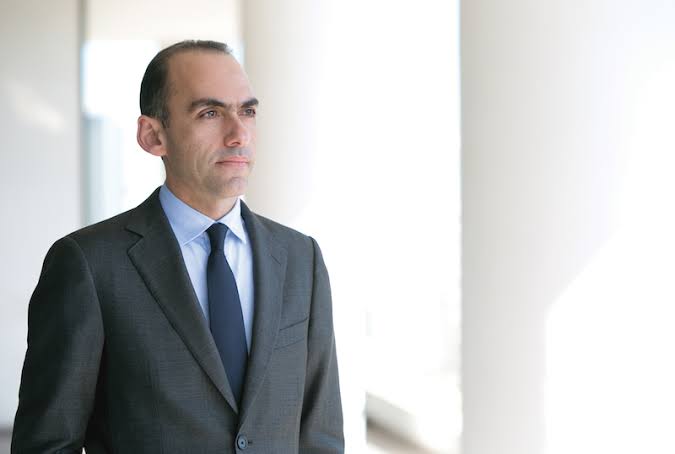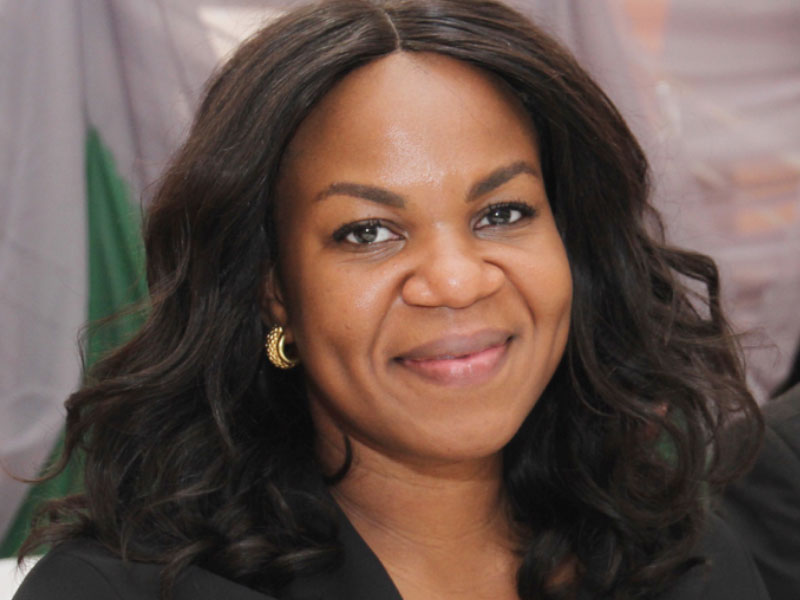Sense and nonsense : Thesis on governance in Nigeria
By Owei Lakemfa.
A trite is that there is nothing new under the sun. However, governance in Nigeria demonstrates that a lot of things can be new under the sun. For instance, there were widespread announcements mainly in the ubiquitous social media that 77-year old President Muhammadu Buhari was getting married to newly appointed Minister. I am sure we all knew it was a joke because it is no joke running a complex country like Nigeria. So, adding another woman to a matrimonial home with a strong matriarch can be quite combustible.
As I wondered if there are people who can beat these Nigerian fakers, a video surfaced of a lady purported to be the wife of President Buhari and First Lady of the Federal Republic of Nigeria, Mrs. Aisha Buhari shouting and creating a scene allegedly in the Presidential Villa. I laughed heartily at such imaginative video following on the steps of the fake wedding. But I was shocked when this proved authentic. It confirms my thesis that there are new things under the sun, at least in Nigeria.
I felt quite sad that a lady, claiming to be Fatimah Daura would release a video that presents the First Lady of a country in unflattering light and claim to be justified. In the process, Fatimah unwittingly, portrayed her family as homeless persons that must be accommodated as if the Presidential Villa is an Internally Displaced Peoples’ camp.
My thesis is that domestic policy, feeds foreign policy; that the domestic situation in the Presidential Villa could prevent the President from running a clear-headed foreign policy as reflects in the current closure of our land borders.
Thirty five years ago, then General Muhammadu Buhari as Military Head of State, in January and April, 1984, shut our land borders with Benin Republic. During the closure, I visited a friend teaching not far from the border. A mutual friend ordered for drinks to welcome me. At a point I noted that the drinks were taking too long. The latter apologized and said it was taking that long because it was cheaper in Benin Republic. Astonished, I asked if he sent for the drinks from the neigbouring country. He affirmed he did. I asked how it was possible when our borders were shut. He laughed heartily and asked rhetorically, “Which borders?” He said if I want, he could help me wheel a three-storey building across the shut border.
I recall that statement in realization of the fact that as at today, we have over 1,000 illegal crossing routes on our borders, not counting those with homes and property straddling our country and neigbouring countries. If such a move 35 years ago, did not yield positive results, why do we think repeating it now will? Of course there are those who claim the closure is effective as there are over 1,000 trucks lined up on the Benin Republic border waiting to cross into Nigeria. I do not understand the logic; these are trucks intending to pass through the official Seme, Owode and Idiroko crossing points and are therefore ready to declare their goods and pay custom. They are not those intending to go through the illegal crossings. Simple logic dictates that what we need to do is not deny them entry, but screen them, confiscate banned or illegal goods and impose appropriate charges on the rest.
If the economies of our neigbours are so dependent on Nigeria, does it make sense to shut our borders against them rather than take advantage of their dependency?
The Comptroller-General of Customs, Col Hameed Ali (Rtd) who heads a revenue collecting agency, holds himself out as the leader of what is essentially a security operation at our borders and who acts as if in a Nollywood film, justified the myopic policy on the basis that customs has been making more money since the closure began on August 21.
However, common sense dictates that Nigerians cannot but be the net losers in this badly scripted drama. The Economic Community of West African States (ECOWAS) says the total trade of the region averages $208.1 billion with Nigeria accounting for 76 percent of total trade followed by Ghana, 9.2 percent and Côte d’Ivoire, 8.64 percent; so in closing the borders, Nigerians are the net losers.
Colonel Ali says: “We are strategizing on how best the goods can be handled when we eventually get to the point where this operation will relax for the influx of goods.” The question is, do you think first before closing the borders, or you first close the borders then start thinking or “strategizing” on what should be done?
Our leaders claim the borders were closed because of smuggling. How can we rely on our neigbours to check smuggling into our country? Why would they deploy their resources including immigration and security to check smuggling into Nigeria when that is our primary responsibility?
If we claim our petroleum products are smuggled to neigbouring countries where they are sold at far higher prices, does common sense not dictate that we take advantage of such a situation by running fuel stations in such countries?
If we claim arms are being smuggled in, why don’t we use the scanning machines installed in a place like Seme rather than searching vehicles manually and causing unnecessary delays?
As for drug smuggling, a sure way of detecting them all over the world, is the use of canines. But has any Nigerian seen our National Drug Law Enforcement Agency (NDLEA) using canines whether at our airports, borders or seaports? Even on the road, all you see are NDLEA operatives fretting with guns and manually checking vehicles. Is there something wrong with our decision makers?
As for rice smuggling, if it is true that we are self-sufficient in rice production, why have our local farmers not used this opportunity to flood the markets? The fact that with the closure, the average price of a bag of rice has increased from N15,000 to N24,000 is an indication of the difference between reality and the propaganda that we are self-sufficient in rice production.
Read also: Nigerian e-Health Startup Doctoora Secures $14,000 At NESG Pitch Event
It is sad that we are endangering the people-to-people relationship that has existed from pre-colonial times; that we are rubbishing the ECOWAS protocols on free trade and endangering the regional and continental economic integration our fore fathers fought so hard for. We should not assume that our brothers and sisters in the region are incapable of retaliating. Even if they do not shut their borders, they can restrict our goods or traders as Ghana has strived to do for six years now.
If we want good neigbourliness, let us start by treating fellow Africans with respect not behave like bullies. Let us put on our thinking caps.
Kelechi Deca

Kelechi Deca has over two decades of media experience, he has traveled to over 77 countries reporting on multilateral development institutions, international business, trade, travels, culture, and diplomacy. He is also a petrol head with in-depth knowledge of automobiles and the auto industry.
















